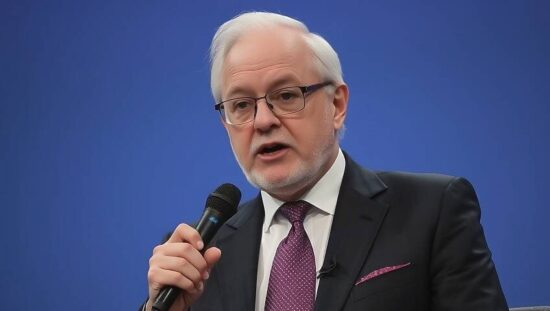A former German ambassador to Washington, Wolfgang Ischinger, expects no swift peace talks in the Ukraine war, in contrast to the new US government.
Speaking to the German television network “Welt” at the Munich Security Conference, Ischinger said that the US is “pushing for speed” on the issue and that it appears they want to meet with Putin before Easter. However, the long-time leader of the conference and currently its foundation council president is certain: “We will quickly realize, if these talks ever get started, that President Putin will be a very hard nut to crack, one that Trump cannot simply crack open.”
According to Ischinger, the idea that one can simply draw a line through Eastern Ukraine, secure it with a few security guarantees and then the event is over, will not work. Putin, in his phone call with Trump, said that one must approach the “foundations of the conflict”.
By this, Putin means the entire question of the security architecture in Europe, the American presence in Europe, the influence sphere of Russia in Europe and the pushing of the US out of Central Europe, Ischinger explained.
He therefore believes it possible that the US side may respond to Russia in a very different way, should Putin insist on his maximum demands: “Sanctions threats, further military build-up, further military aid to Ukraine – that’s all still not digested.”
Ischinger, who was German ambassador to Washington for more than five years, also criticized the US for its suitability as a model for democracy. He said that the US has a deeper polarization than any European country, with the two parties, which are in competition with each other, no longer even talking to each other. The democratic culture in the US is “on the verge of collapse” and “at its lowest point”.
“And if one looks at this polarization of American society, then I find it a bit presumptuous, so to speak, to lecture Europeans from the podium on how to define and execute democracy. (..) We need the US for the management of the great conflicts and crises. But we don’t need them as a teacher for the way we handle our democracy.”
The fact that the AfD was excluded from the MSC by its chief, Christoph Heusgen, was justified by Ischinger with the AfD’s behavior in the German Bundestag, where they left the hall during the speech of the Ukrainian President Volodymyr Zelensky, showing that they are not interested in a solidary support for the attacked country.
And further: “I personally believe that one can defend the decision of my colleague Heusgen.” For the MSC next year, Ischinger did not rule out a different decision: “Let’s wait for the outcome of the Bundestag elections first.” There is “nothing set in stone.” And then it will be decided anew next year.





